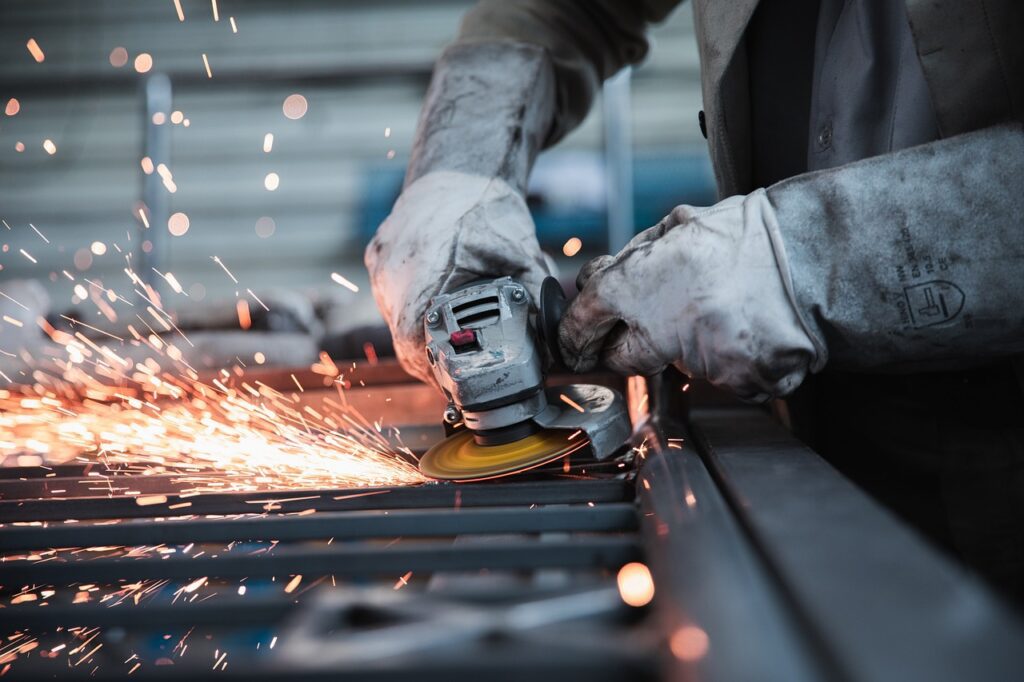There’s no better time to be searching for skilled jobs in manufacturing. Not only is the industry rapidly evolving in exciting ways, but there are more open roles in the skilled trades right now than ever before.
Whether you’re an experienced tradesperson or pursuing your first skilled job, if you’re interested in working in the sector, there’s a role available to fit your profile.
Why work in manufacturing?
The benefits of working in the manufacturing industry are numerous. Here are a just a few of the reasons to consider pursuing a career in manufacturing:
High demand
Right now, opportunities in the skilled trades are abundant. With the older generation of workers retiring and a shortage of skilled tradespeople across the sector, there are roles available for both new and experienced workers in manufacturing.
Development opportunities
Not only do most manufacturing companies train workers on the job, but you can expect them to invest in your development. Employers in the industry recognize the importance of providing opportunities for growth and advancement to ensure they retain great people.
A wise investment
When you choose a skilled trade, you avoid taking on student debt in favour of learning as you work. You can also expect stability; skilled jobs tend to be consistent and reliable, so you can plan for your future.
What are the most in-demand skilled jobs in manufacturing right now?
Within the skilled trades, staffing agencies and HR departments are looking to fill many types of roles. However, certain skilled jobs are in markedly high demand right now.
If you’re looking for open roles in manufacturing, here’s our list of some of the most in-demand skilled jobs right now.
Industrial Mechanic
With a range of machinery involved in modern manufacturing, it’s no surprise that industrial mechanics are some of the most sought-after skilled workers. Industrial mechanics understand the machines on which they work inside and out. They have a knack for understanding how things work, and they’re great problem solvers.
As an industrial mechanic, you’ll learn to read and understand mechanical manuals, and become familiar with preventative maintenance practices. You’ll also build a comprehensive understanding of the most common machines used in manufacturing.
Welder
Welders are essential to manufacturing. Responsible for joining parts together, repairing machinery, and more, they are needed for most projects in the sector. To succeed as a welder, you’ll need to learn some math, chemistry, metallurgy, and physics, and you’ll also be required to understand how to read and understand blueprints.
Although the role requires more training than many other skilled trades, welders are compensated well for their abilities, and they’re always in high demand.
Material handler
Many manufacturers require a specialist to handle and transport materials, recognizing that specific requirements and practices are often necessary. Materials handlers are responsible for transporting materials between factories and dispersing them appropriately. They’re also typically in charge of quality control, ensuring that everything stays in good repair while in transport.
Depending on the materials involved, this role might require lifting by hand, operating forklifts, or using other machinery, such as a conveyer.
Electrician
When you think electrician, wiring for residential buildings might be what comes to mind. However, electricians are integral to keeping the lights on in factories and plants, too. In manufacturing, electricians inspect, install, and maintain electrical components—think circuit breakers and transformers—in the equipment. Although the role requires training, electricians begin as apprentices, learning from experienced workers on the job.
Machine operator
A key role within any manufacturing plant, a machine operator runs the equipment during production. They also play a role in maintenance and repairs to ensure everything stays in tip top shape.
Although each facility is unique, machine operators are usually expected to start with some technical experience. With the rise of computer-operated equipment, it is also becoming increasingly important for workers in this role to have some understanding of computers as well as mechanics.
Machinist
Machinists produce metal parts using a range of tools and equipment, including lathes and grinders. They read and interpret blueprints, then they cut, fit, and assemble parts to match precise specifications. Accuracy and quality control is critical in this job.
Thanks to technological advancements, the role of machinist has evolved to include digital technologies. In addition to manual skills and mechanical abilities, modern machinists must have an understanding of mathematics and computer programming.
Production supervisor
Production supervisors are responsible for the operation of their manufacturing units. They ensure that each unit is functioning efficiently and effectively, keeping processes on schedule. Additionally, they handle staffing, training, and the critical responsibility of maintaining health and safety protocols.
It’s a fast-paced role with a range of duties, but it can also be rewarding. Production supervisors work closely with team members and build meaningful relationships with the members of their unit. Those with great people and communication skills thrive in this job.
The bottom line
There’s no better time to start your first job in manufacturing or advance your career within the industry. With so many opportunities available, you’re sure to find a role that fits your skills and lifestyle.
Does your company recruit skilled workers in manufacturing? Designed especially for the manufacturing industry, Labourly™ is a simple, intuitive solution for managing your skilled workforce. Book a demo call today to learn what it can do for you.










